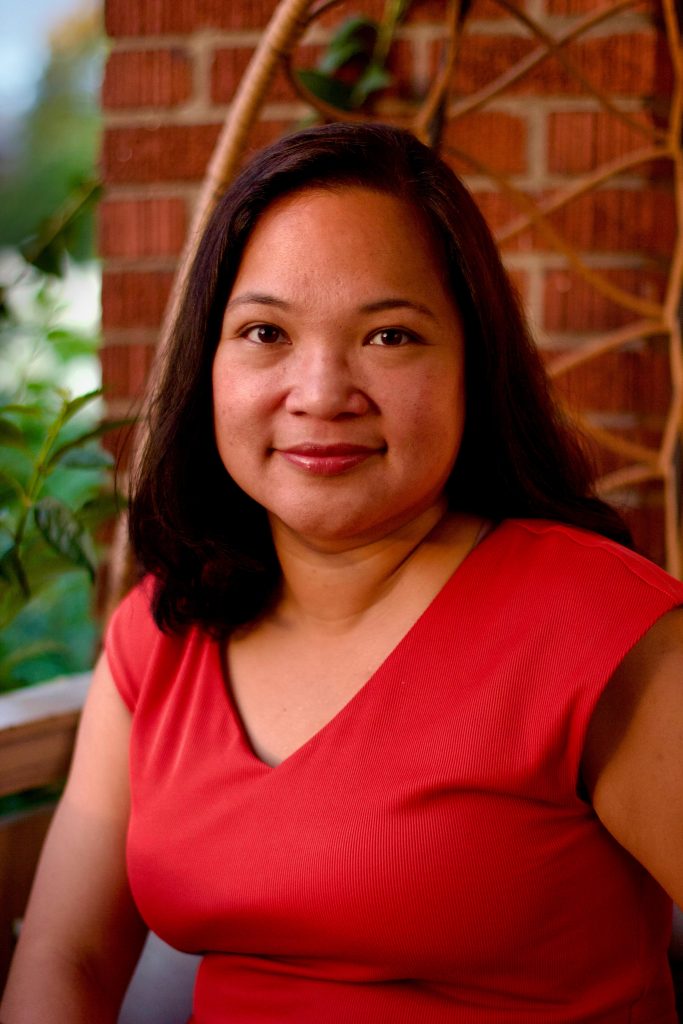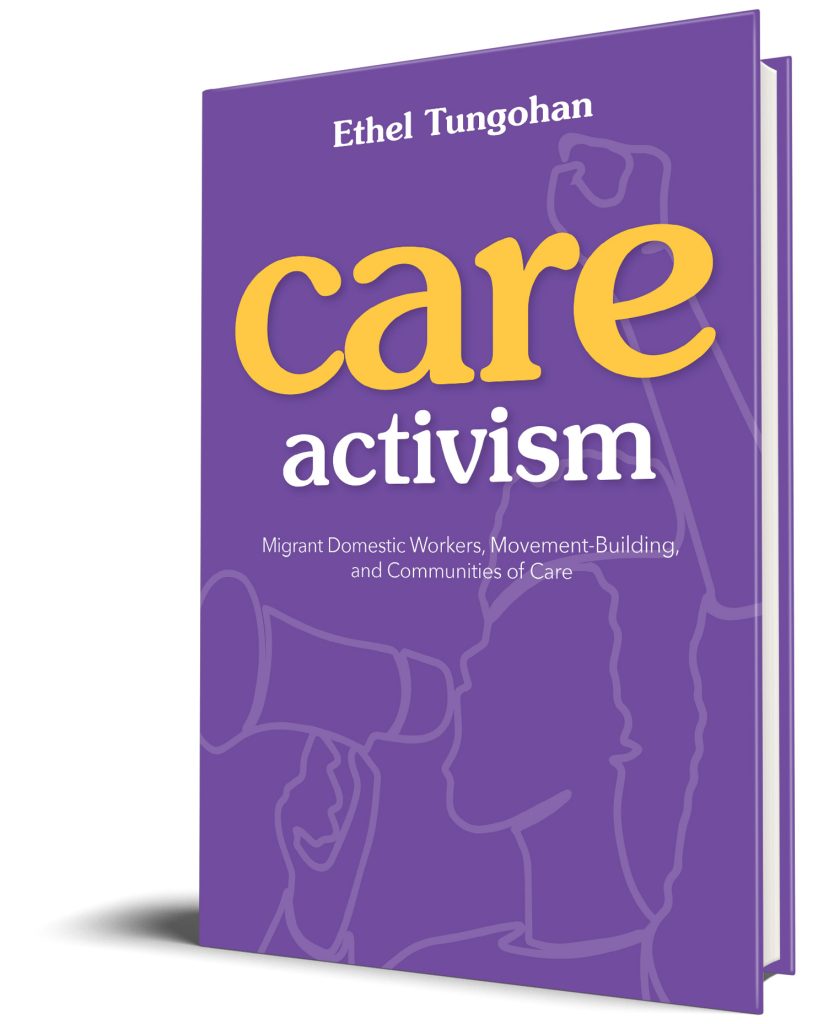Ethel Tungohan, author of Care Activism: Migrant Domestic Workers, Movement-Building, and Communities of Care, answers questions on her new book.
Q: Why did you decide to write this book?
I decided to write this book because I want to honour migrant domestic workers. I am part of the Filipino community and spent my formative years in the Philippines, Hong Kong, and Canada. Many family members and family friends left the Philippines to work as domestic workers in different countries to support their families. So from a young age, I was exposed to the necessity of migrant labour, specifically of migrant domestic work. The remittances sent by domestic workers were so crucial in supporting not only their families, but entire communities! My mom was also the Executive Director of an organization supporting domestic workers when we lived in Hong Kong so I spent time hanging out with titas (aunties) at this organization’s offices during their days off from domestic work. From the stories I heard growing up, I knew that while migrant domestic work was oftentimes grueling and that it was hard to leave home, stories of sadness weren’t the sum total of migrant domestic workers’ lives.
In fact, when I became an academic, I was uncomfortable with how so much of the literature on migrant domestic work focuses on narratives of distress. Based on my research, migrant domestic workers have been at the forefront of activist movements that seek better working conditions for migrant domestic workers and have formed what Valerie Francisco-Menchavez calls “communities of care” to provide each other with support. When researching migrant domestic workers’ activism, I bore witness to so many moments of joy born out of mutual support and out of a sense of solidarity in these communities of care. By centering migrant domestic workers’ voices and describing key moments of migrant domestic worker resistance, Care Activism adds nuance to existing depictions of migrant domestic work.
Q: What is the most interesting discovery you made while researching and writing your book?
There are two interesting discoveries that I’d like to share. First, I discovered the creativity that went behind care activism. While such activism does involve conventional modes of advocacy such as petitioning, lobbying and rallying, I found that migrant domestic workers used flash dances, beauty pageants, and various forms of art to publicize their campaigns.
Second, I want to emphasize that care activism also takes place outside the ‘public’ eye: they take place within “communities of care.” My fondest memories researching migrant domestic workers’ activism involved being invited to spaces where domestic workers just hung out, ate, and shared stories about their lives. These seemingly mundane spaces are actually such incredibly important sites of activism. By bearing witness to each other’s everyday lives, these spaces enable feelings of solidarity and strengthen migrant domestic workers’ realization that they are not alone.
Q: What myths do you hope your book will dispel or what do you hope your book will help readers unlearn?
I truly dislike how much of mainstream media and popular culture depicts migrant domestic work as being an unrelenting site of tragedy. Migrant domestic workers openly recognize that economic inequities between states drove them to seek jobs abroad. They understand so well the limitations of state policies in enshrining labour protections. And many of them fight against these economic inequalities and seek policy improvements! So, really, we need to acknowledge migrant domestic worker agency and dispel the myth of them being abject.
Q: Which part of the publishing process did you find the most interesting?
One thing that I find interesting is that there are different cultures at different presses. I thought, when I was starting out as an academic, that all university presses are the same and that all editors have similar approaches. I have learned since that there are different “cultures” in different presses. I have also learned that different editors have different approaches to working with authors.
Q: What is your advice to scholars/authors who want to take on a similar project?
For scholars and authors who wish to do the same type of socially-engaged research that I do with migrant communities, my advice is to be humble. Many scholars enter these communities thinking that they, as academics, know all. And many communities are understandably wary of academics. It is important to find ways throughout the research process to dismantle power hierarchies between researchers and the “community.”
Q: What do you like to read/watch/or listen to for fun?
I am a voracious reader and listener of books and audiobooks. I recently read my friend Debra Thompson’s book, The Long Road Home, which I highly recommend. And I tend to listen to memoirs on podcast. I particularly liked listening to Michelle Zauner’s Crying in H-Mart as an audiobook. And I love podcasts. A favorite podcast is “Who Weekly?” and “Pop Chat”, both of which dive into celebrity culture. I also produce and host a podcast called “Academic Aunties,” which is for women of color and first-gen scholars in the academy. Each episode, we do a deep dive into the “hidden curriculum” in academia.

Ethel Tungohan is an assistant professor of politics and social science at York University.

